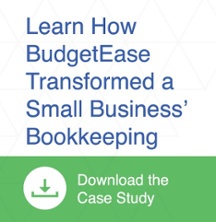
Bookkeeping is not an emergency room business. You don’t need to be an expert, but you do need to have an expert on hand. Rushing through bookkeeping can lead to errors, missed opportunities, and financial instability. Today we will discuss why slowing down and focusing on accuracy is essential for successful bookkeeping.
At BudgetEase We Get Emergency Calls Because:
- Entrepreneurs and small business owners often feel overwhelmed when launching a new venture. They need guidance and bookkeepers can provide calm and accurate advice during these critical moments.
- Bookkeeper is leaving for good or for a temporary period: When a bookkeeper leaves, clients worry about continuity. Slowing down to ensure a smooth transition—documenting processes, organizing records, and deciding whether to train a replacement or outsource your bookkeeping; the right support—can prevent chaos.
- A current bookkeeping client is starting something new: Existing clients may expand, diversify, or open complementary businesses. Slowing down to assess their evolving needs ensures accurate financial reporting and strategic decision-making.
Start Out Right:
Here is what we recommend you can do to start on the right foot. With the appropriate documentation, you or a bookkeeper can reconstruct your financial information easily to file your taxes. When starting a business, having a business plan, a sales pipeline, and a product in demand are a higher priority than bookkeeping. Here are some simple steps to get you started accurately:
- Obtain a Tax ID Number: Even if your business is in its infancy, obtaining a tax ID number (EIN) is crucial. It allows you to open a business bank account that will track income and expenses, and comply with tax regulations.
- Open a Business Bank Account: Separating personal and business finances is essential. Opening a dedicated business bank account ensures accurate record-keeping and simplifies tax reporting. Do this even if you don’t have a tax ID number yet.
- Keep Receipts: Keep receipts for all transactions. Use digital tools or Excel to record the date, amount, payee, and purpose. Accuracy in expense tracking prevents costly mistakes. Check out this video if you want to know how to start out keeping receipts-
- Draft a Budget: Draft a budget to determine the financial viability of your product or service. A budget also helps you to understand your business’s financial health. You will be able to more effectively allocate resources, plan for growth, and identify areas for improvement.
Then you can Prioritize Bookkeeping:
- Cash Forecasting for sustainability: Accurate cash flow projections help you manage liquidity, pay bills on time, and avoid financial crises.
- Sales Goals to keep you on track: Regularly review your progress toward sales targets. Adjust strategies as needed to stay on track.
- Expense Management: Analyze expenses to identify cost-saving opportunities. Slowing down to scrutinize spending patterns can lead to significant savings.
If you wonder when you are ready for a bookkeeper, check out this blog post.
Remember, bookkeeping is not an emergency room business. By slowing down, paying attention to details, and prioritizing accuracy, you’ll build a solid financial foundation for your business. Take the time to get it right—it’s an investment that pays off in the long run. If you have any further questions or need additional information, BudgetEase is here to help!





